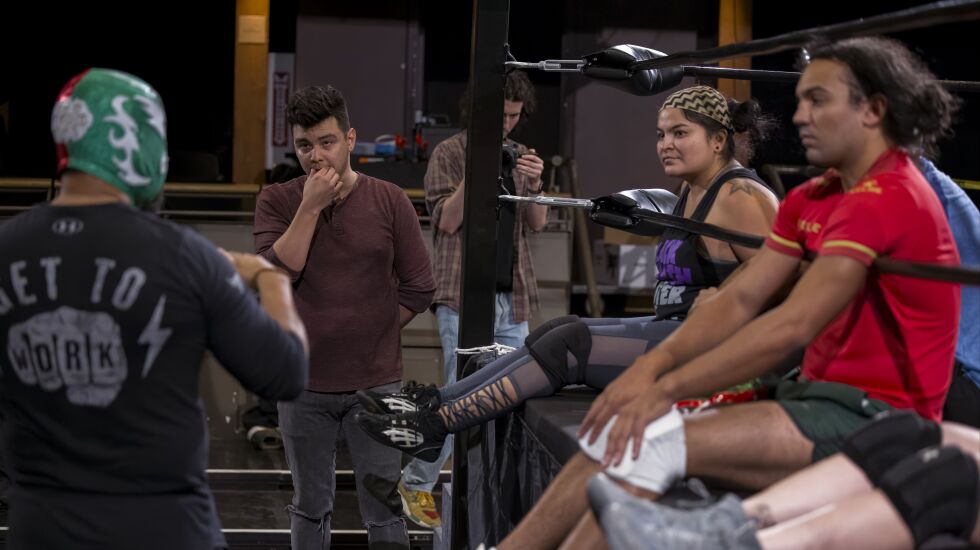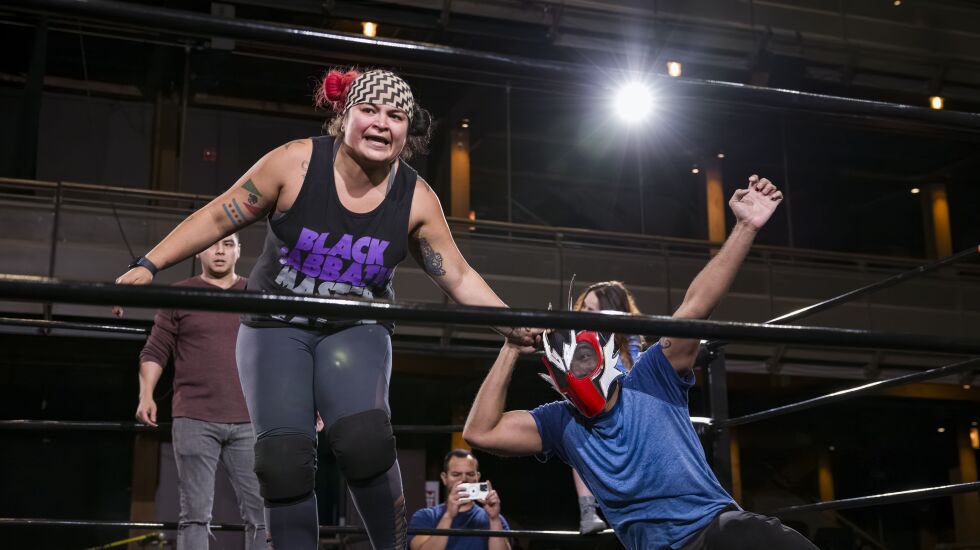
The Chicago International Latino Theater Festival, known as Destinos, is back for a sixth year, celebrating Latino performance art in English and Spanish at venues around the city.
Jorge Valdivia is the new executive director of the theater alliance after Chicago Latino Theater Alliance co-founder Myrna Salazar’s death last year.
“We’re going to continue to honor Myrna’s legacy,” Valdivia said. “What she would want is for us to do a job that is well done, that is perfect.”
The programming this year features pro wrestling, drag, a comedy show, a children’s theater among 17 productions over six weeks at nearly a dozen venues around the city presented by local and international theater companies.
Three international productions will make their way onto Chicago stages as part of Destinos, which is Spanish for destinations.
“Yo No Estoy Loca” (“I Am Not Crazy”) is a one-woman show from Teatro Petra in Bogotá, Colombia, directed by Fabio Rubiano, that stars Marce Valencia as Cielo, a woman who has opted for a less-than-traditional lifestyle.
Society demands much from women and often ostracizes them for “not agreeing with things, like not wanting to get married,” Valencia said in Spanish.
The performance is a monologue comprised of several stories from Cielo’s life, touching on topics including family, love, mental health and sexuality.
Rubiano said it’s largely informed by conversations the two have had about how Valencia is often labeled as “crazy” for preferring to have dogs over children.
Ultimately, “Yo No Estoy Loca” is a comedy.
“What we hope is that people have fun,” Valencia said.
The play has evolved into a participatory performance in which those in the audience can feel they are a part of the spectacle.
“Chicago is my favorite city that I don’t know,” Rubiano said in Spanish. “I’ve never been to Chicago, but I know that it’s a land of playwrights. There is a great theatrical movement, and we are very excited.”
Valencia said being able to do this monologue in the United States is “very important” for her, especially as an actor from another country.
People “watch the stories unfold on stage, and they’re doing more than supporting Latino theater, they’re also contributing to the narrative that Latino theater is thriving,” Valdivia said.
All of this is part of carrying out Salazar’s legacy of uplifting Latino performance art.
At the Goodman Theatre, Paloma “Starr” Vargas, known as “La Sriracha Muchacha” in the indie wrestling community, stars as Coyol (short for the moon goddess Coyolxauhqui) in “LUCHA TEOTL.”

The play is an action-packed lucha libre extravaganza written and directed by Christopher Llewyn Ramirez and Jeff Colangelo from Prism Movement Theater in Dallas.
“I approached [Llewyn Ramirez] about this idea of doing a play centered around wrestlers who don the masks of ancient Aztec gods,” Colangelo said.
Llewyn Ramirez, a lifelong fan of wrestling, got to work.
The creators said they thought hard about how to “take several months worth of storylines and compress it into an hour and a half.” They created the Lucha Teotl Alliance, or the LTA, the fictional wrestling promotion in the play.
They said the final piece of the puzzle was bringing in pro wrestler Luis “Aski” Palomino as wrestling director to teach the actors how to perform as safely as possible.
The show will include entrance music created for the production, camera operators and a ringside commentary team.
Expect some pyrotechnics as well, the creators said on AEW superstar Chris Jericho’s podcast “Talk Is Jericho.”
Llewyn Ramirez said it’s exciting to be able to put on “LUCHA TEOTL” at the Goodman, especially given that Chicago is the birthplace of many pro wrestlers and has been the home to internationally recognized wrestling promotions.
“LUCHA TEOTL” isn’t the only production bringing physical theater to Destinos.
Xavier Custodio, director and founder of Chicago’s Visión Latino Theatre Company, is bringing “That Must Be the Entrance to Heaven” to UrbanTheater Company in Humbolt Park.
Custodio said he could see the scenes of the play, written by Franky D. Gonzalez, play out in his head when he first read the script.
Coming from a Puerto Rican family, Custodio says, he “grew up in the living room [with] my family paying for pay-per-views to watch boxing ... The whole family was yelling and screaming and all that right at the TV.”
“That Must Be the Entrance to Heaven” goes behind the scenes of the boxers’ stories.
“Each man is fighting for something different,” Custodio said.







